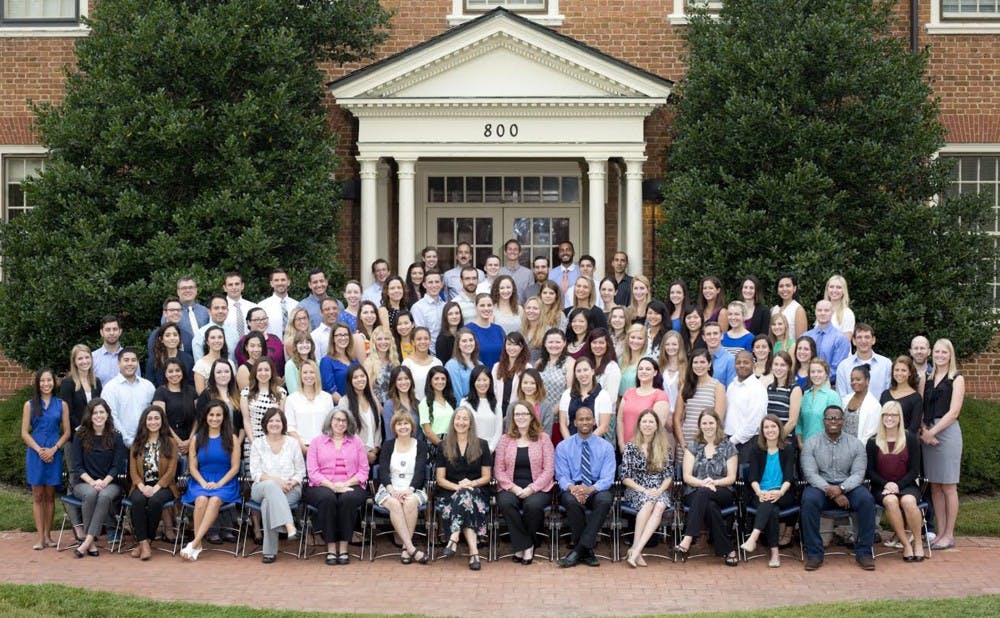The School of Medicine’s Physician Assistant Program will celebrate its 50-year heritage and accomplishments Saturday.
The program, which was established as the first PAP in the country 50 years ago, will celebrate its achievements with an event sponsored and organized by alumni and current faculty of the school. Established by Dr. Eugene Stead in the 1960s, the initiative was designed to address the undersupply of physicians at Duke by training students to supplement physicians’ efforts—such as by taking patient histories and performing examinations—according to the Duke School of Medicine. Duke’s PA school has since grown to boast an almost equal male to female student ratio, offer a unique clinical rotation in five countries and empower its graduates to serve in diverse fields like radiology, oncology and surgery, PAP Program Director Karen Hills said.
“Part of [our success] is the ability to recognize the responsibility we have as a leader in the profession and to continue to grow and evolve as a program,” she explained. “It would be easy to sit back on our laurels, but that’s just not who we are.”
Hills, who supervises the day-to-day operations of the two-year program, said that students in their first year focus on learning through lectures and seminars while second-year students rotate throughout different clinical settings.
She added that the coursework and clinical experience which students receive enables them to work with physicians across the country and make independent medical decisions for patients in many medical specialties.
Serving at the forefront of PA training has allowed Duke to provide its students with numerous opportunities, said second-year PAP student Scott Zeller, who also added that the program does come with its challenges.
“The aspect of Duke that has challenged me the most is the sheer intensity and pace of the program, especially throughout our first year,” he said. “We moved through everything at the speed of light so that we could at least cover all topics to prepare us for clinical year and our future.”
In addition to interesting guest lecturers and the network that Duke graduates get access to, Zeller explained that he appreciates the program’s unique global health elective, which pairs students with foreign healthcare providers and stimulates student immersion. Students can fulfill this elective in five different countries, he said, including Bolivia, Honduras, Sri Lanka, Ecuador and Tanzania.
The elective—which was the product of a recent partnership between PAP, the Duke Global Health Institute and the Frist Global Health Leaders Program—will send Zeller to Ecuador in January.
Duke’s 88-student 2017 class is considered large relative to other national programs, which Hills said contributes to diversity and knowledge sharing. By setting a 1,000 hour clinical experience requirement for admission eligibility, the PA school ensures students come in with medical experience and a high level of flexibility, Hills noted.
“I think the dedication to diversity in the student body, everything from our cultures to our previous healthcare experience, has allowed us to continually learn from each other and enhance our experience at Duke,” explained Lindsay Cook, a second-year student in the program.
The program is open to applicants from many different backgrounds—Zeller explained that he previously taught math at a boarding school and noted that the program is currently training a former lawyer and news anchor.
“There’s a lot of different ways our students get health care experience, and I think that adds to the richness of our class,” Hills said. “Students learn a lot here at Duke and I really think they learn a lot from each other because people bring such a rich background when they come to the program.”
Get The Chronicle straight to your inbox
Signup for our weekly newsletter. Cancel at any time.

